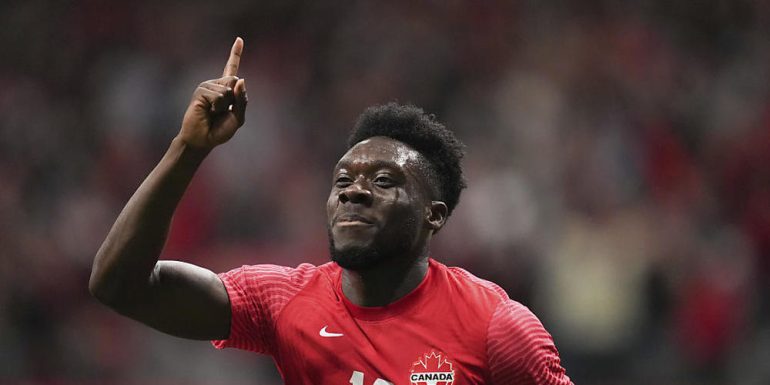“This is the moment the country has been waiting for. The Kings of the North have made it!” TV commentators didn’t shy away from exaggeration as Canada sealed their World Cup ticket with a 4-0 win over Jamaica amid a blizzard in Toronto on March 27. The players – many with tears in their eyes – remained outside in the cold for several minutes, hugging and allowing frantic fans to celebrate. “They’re all legends already,” the commentator enthused, predicting, “this was just the beginning.”
For only the second time since 1986, Canada is in the final of the World Cup. The last time the team narrowly failed to qualify for the 1994 World Cup in the United States was when they lost to Australia in a penalty shootout in the intercontinental playoff. Since then, Canadians haven’t even come close to participating. The exclamation point was all the bigger when they outclassed regular World Cup guests like USA and Mexico in this qualification and finished the group in first place.
new professional league
Four years before the home World Cup, which Canada is co-hosting with the United States and Mexico, there is much excitement in the country. Qualification for Qatar came about thanks to a talented generation and targeted support.
For a long time there was no professional league in Canada. Canadian teams were included in the American League. Plans to establish their own championship have been repeatedly discussed in the early 2010s, but have not yet been implemented. After much back and forth, the Canadian Premier League came into being in 2017, which is under the Canadian Football Association.
The game debuted in 2019 with currently seven teams. Clubs are required to field at least six Canadian players in the starting XI and are permitted to sign a maximum of seven foreign players. In addition, three local players must be under the age of 21 and have a combined playing time of at least 2000 minutes per season. They are conditions that pursue the goal of further developing Canadian soccer.
young optimist
However, with only three seasons played, it would be premature to speak of the league’s influence in terms of national team success. In contrast, Canada benefits from a strong generation of players, many of whom have been top performers on top European teams.
The figureheads are young Alphonso Davis and Jonathan David. The two 22-year-old offensive players play for Bayern Munich (Davis) and Lille (David) and are considered the hopes of the nation. The blow came when Davies was injured in a Bundesliga game against Hertha Berlin on 5 November. After a final clarification, he should be fit again in time and – after rehab in Munich – travel to Qatar to join the team.
Liam Miller, who is committed to FC Basel, has also made the squad. However, it remains to be seen whether he will play in the heavily manned attack. He was in the starting XI five times in qualifying and was substituted twice.
unknown coach
The team is led by relatively unknown coach John Herdman. The 47-year-old Englishman was never a professional himself and began his coaching career with the Sunderland youth team. In 2003 he moved to New Zealand, where he held various roles with the women’s national team before becoming head coach in 2006. After two World Cup appearances, she joined the Canadian women’s national team in 2011, with whom she won bronze medals at the 2012 and 2016 Olympic Games.
The father of two children has been in charge of the men’s national team since 2018. Under Herdmann, the team rose to No. 33 in February this year, their highest-ever world ranking.
Commenting on the group draw, Herdman said: “We rubbed our hands and said, ‘This is going to be a great experience’ when we were drawn to Belgium and Croatia.” Canada, without points or goals in its first World Cup in the United States, could play without pressure in Qatar and upset established teams.

Devoted web advocate. Bacon scholar. Internet lover. Passionate twitteraholic. Unable to type with boxing gloves on. Lifelong beer fanatic.





